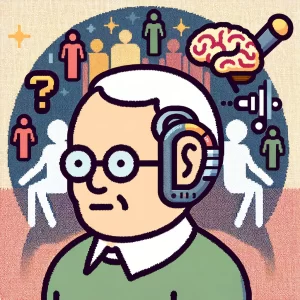
The Public Health Impact of Social Isolation and Loneliness
In our increasingly connected world, the issues of social isolation and loneliness stand as paradoxical yet significant threats to public health. A pivotal study An overview of systematic reviews on the public health consequences of social isolation and loneliness by Leigh-Hunt et al., delves into this topic with remarkable clarity. This article thoroughly examines how these social issues transcend mere feelings of solitude, impacting our physical and mental health profoundly.
The study by Leigh-Hunt and colleagues is not just an ordinary review but a systematic overview, meaning it compiles findings from numerous systematic reviews to offer a comprehensive picture. This approach ensures that the conclusions drawn are not based on isolated studies but represent a broad range of research, making the findings all the more compelling.
The Silent Epidemic
Social isolation and loneliness are more than just feelings; they can lead to serious health consequences. The research underscores a significant association between social isolation and an increase in all-cause mortality. In simpler terms, feeling disconnected from others can shorten one’s life span. This is a startling revelation, particularly in an age where virtual connections often replace physical ones.
The Heart of the Matter
Cardiovascular health, a crucial aspect of overall well-being, is also at stake. The study reveals a robust link between social isolation and cardiovascular diseases. This connection is vital for public health practitioners to consider when designing interventions and policies. It’s not just about promoting healthy diets and exercise anymore; fostering social connections is equally important.
Mind Matters
Mental health, an area increasingly gaining recognition in public health, is profoundly affected by loneliness and social isolation. This research sheds light on the fact that these social issues are not just about feeling blue; they can exacerbate or even lead to mental health conditions like depression and anxiety.
Implications for Public Health Practice
What does all this mean for public health practice? Firstly, it calls for a paradigm shift in how we view health determinants. Social connections must be considered as crucial as traditional health indicators like diet and exercise. Secondly, there’s a need for targeted interventions. Community programs, mental health awareness campaigns, and policies fostering social cohesion could be pivotal in mitigating the health risks of social isolation and loneliness.
A Call to Action
This study is a reminder that in our efforts to foster a healthier society, we must not overlook the power of human connection. As we advance in medicine and technology, let’s not forget the fundamental human need for social interaction and community.
Conclusion
In conclusion, the article is a crucial piece of literature in understanding the far-reaching consequences of social isolation and loneliness on public health. It serves as a reminder that health is a multifaceted concept, where emotional and social well-being are just as important as physical health.
Stay Current with Public Health!
Are you ready to be at the forefront of health advocacy and research? ‘This Week in Public Health’ brings you weekly insights and updates that matter most. From breakthrough research to groundbreaking community initiatives, our newsletter is your ticket to staying ahead in the rapidly evolving world of public health. Subscribe for free and be part of the change you wish to see!



